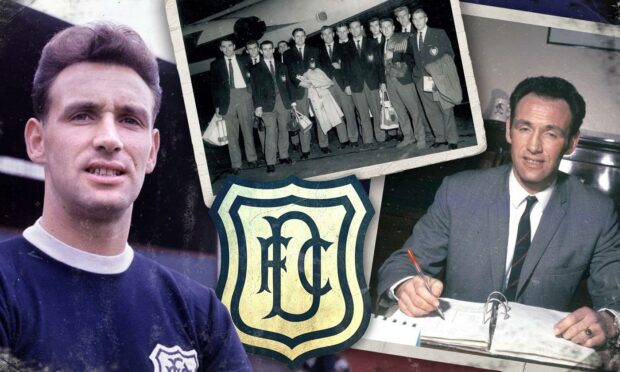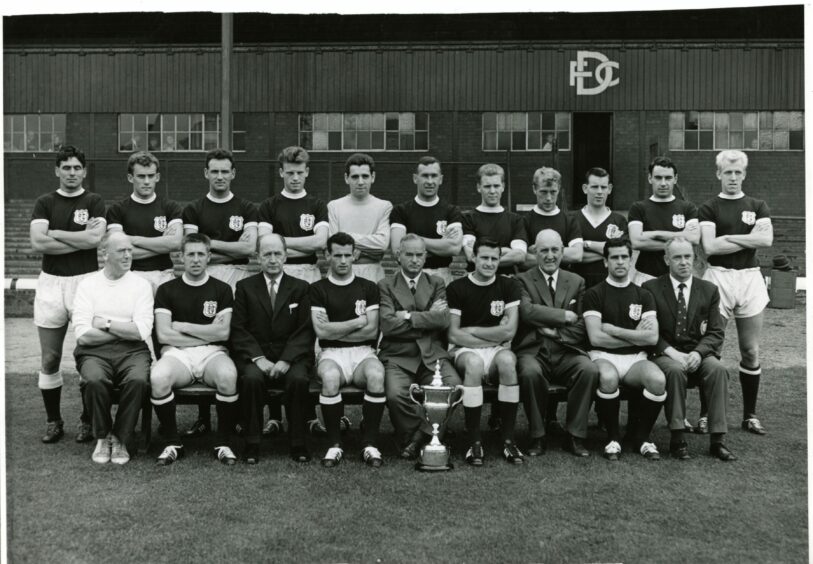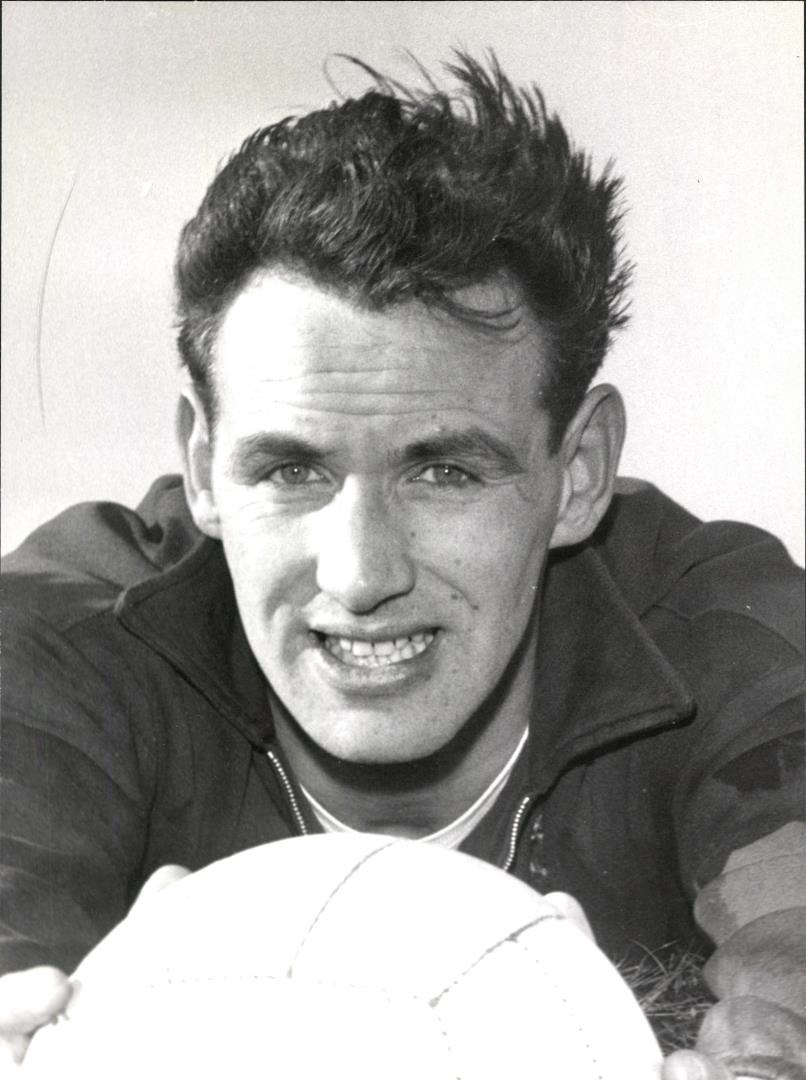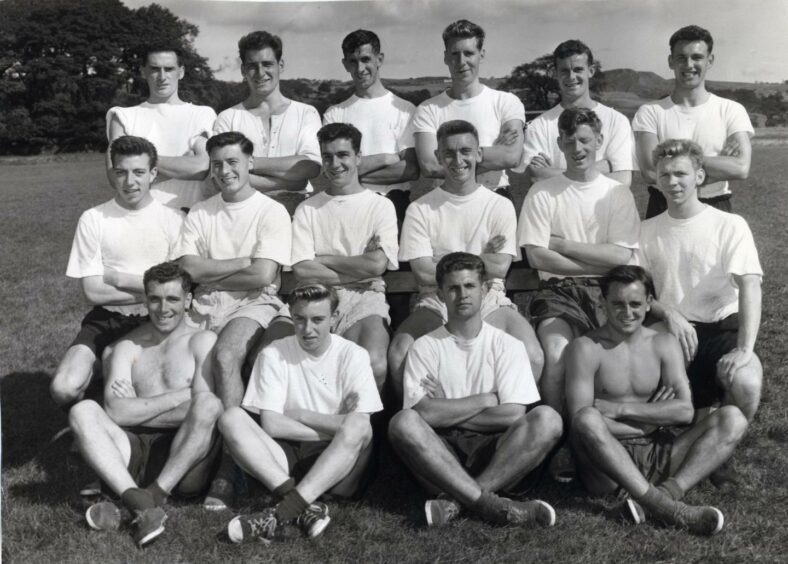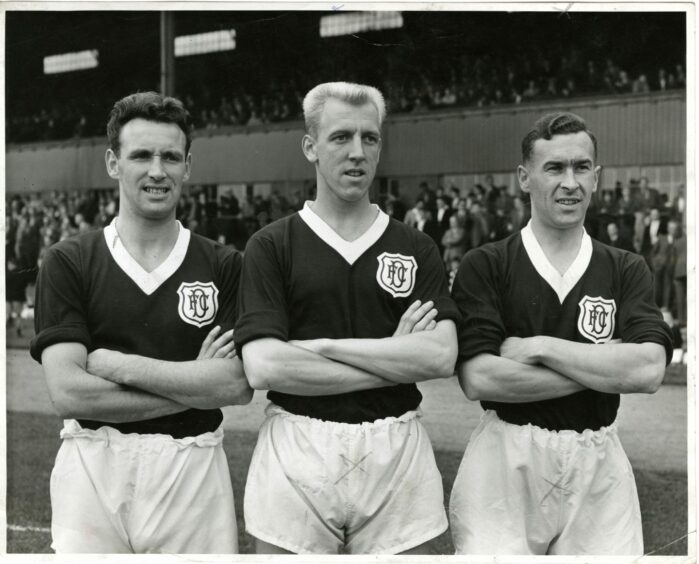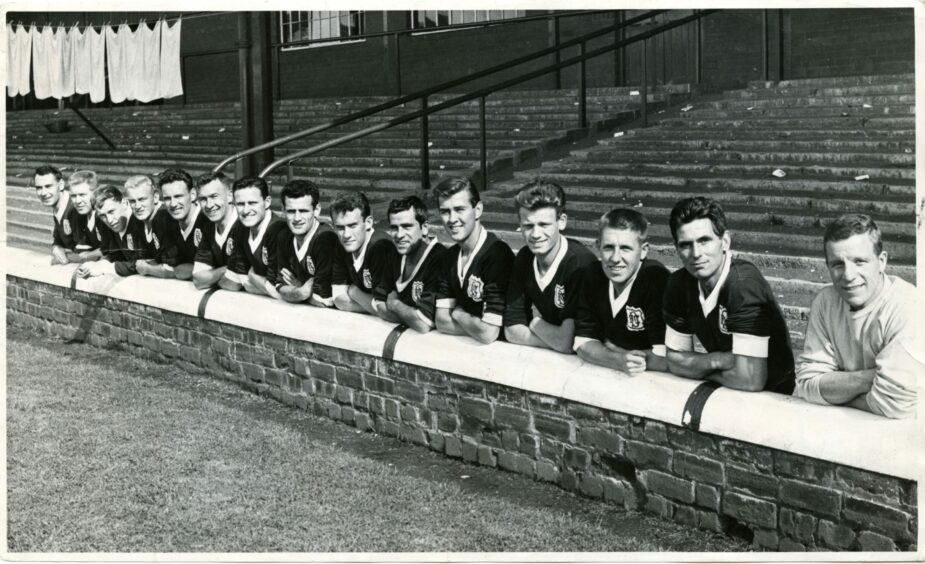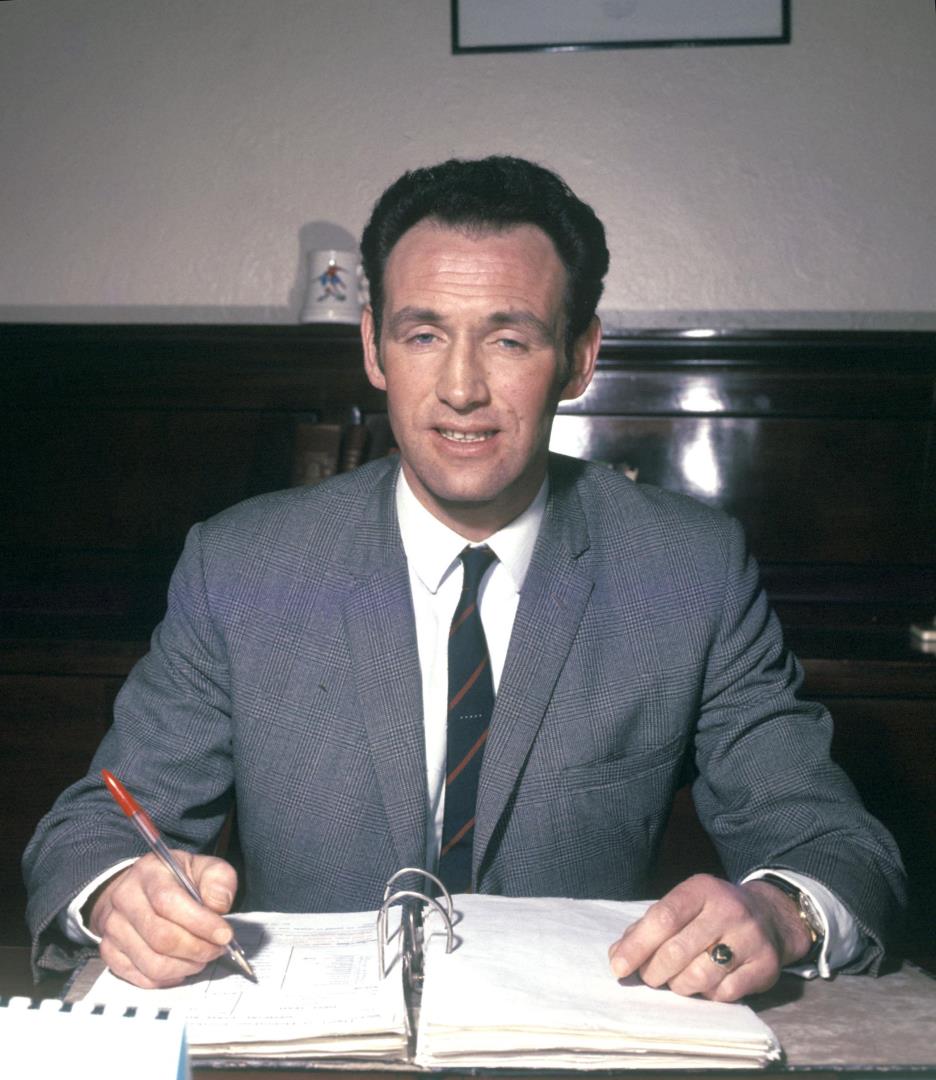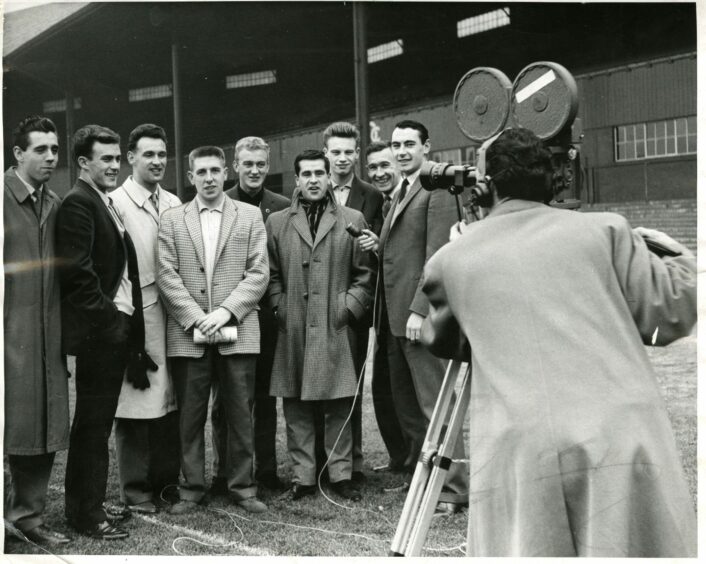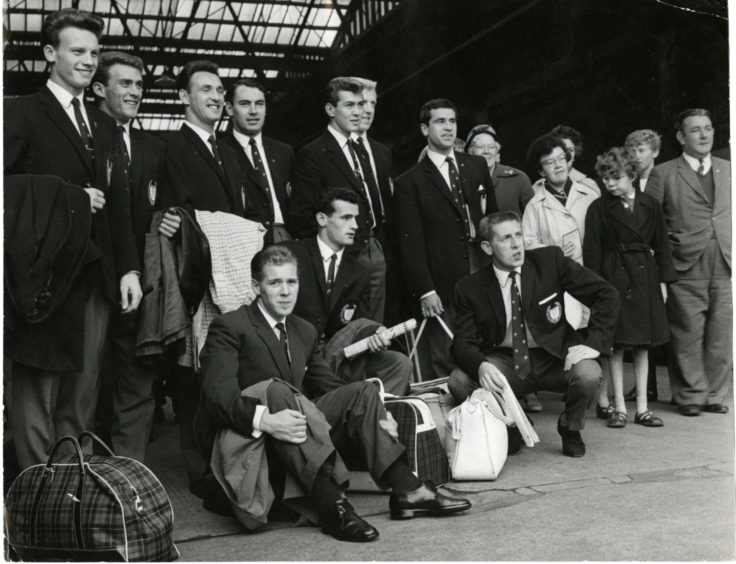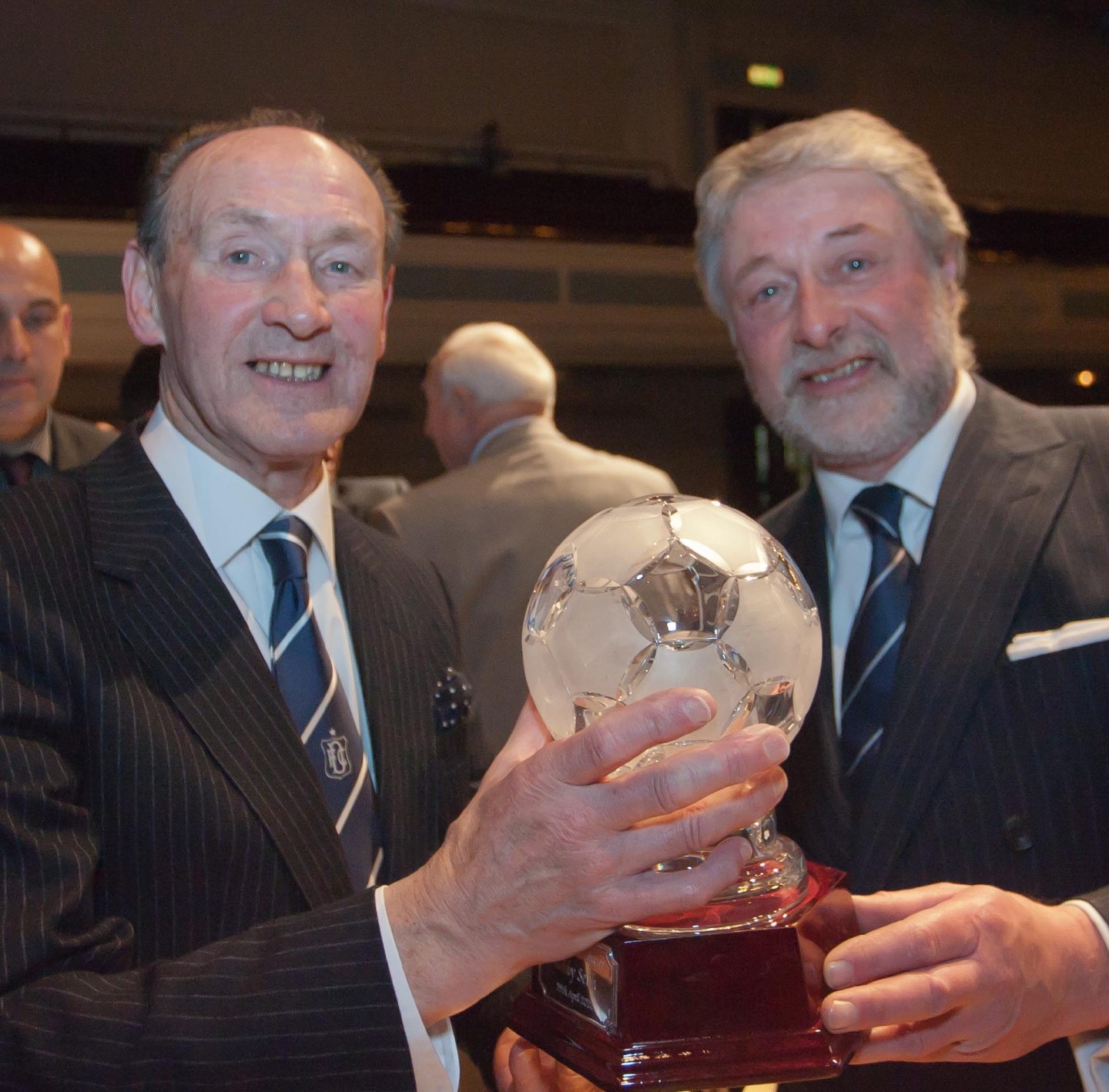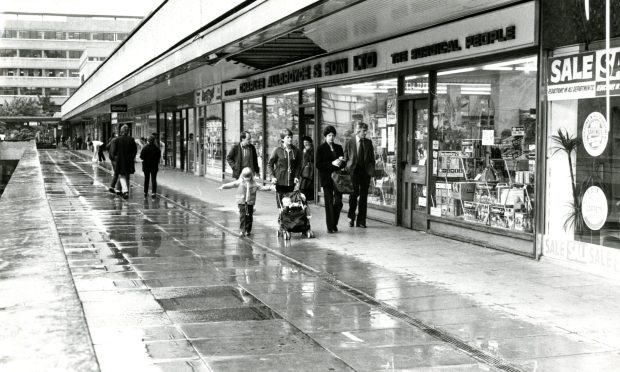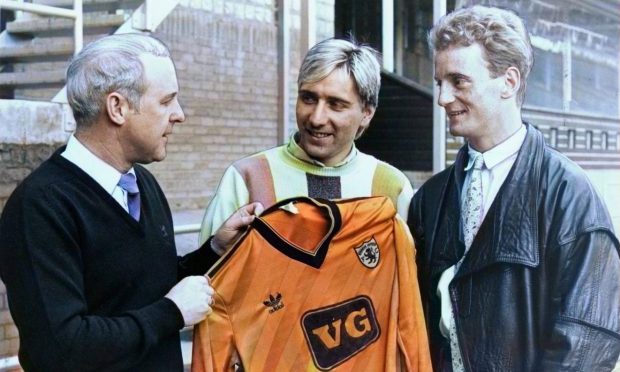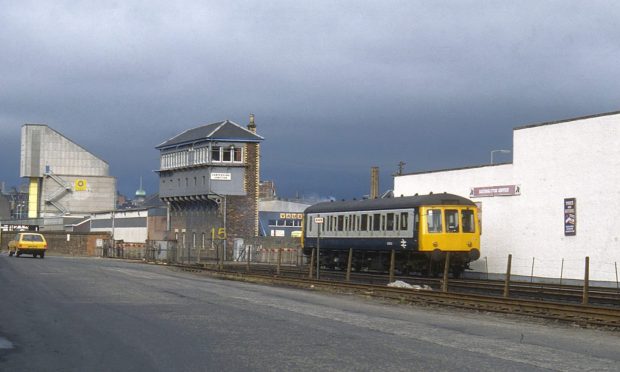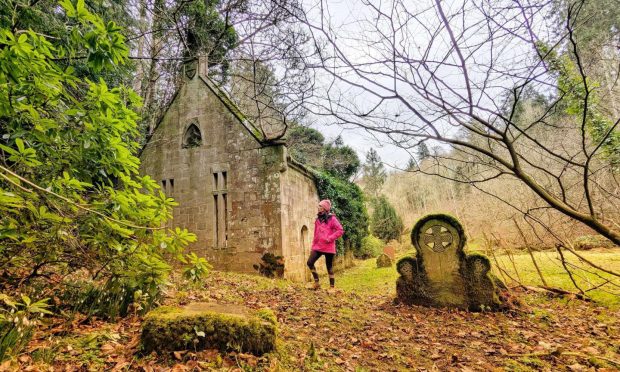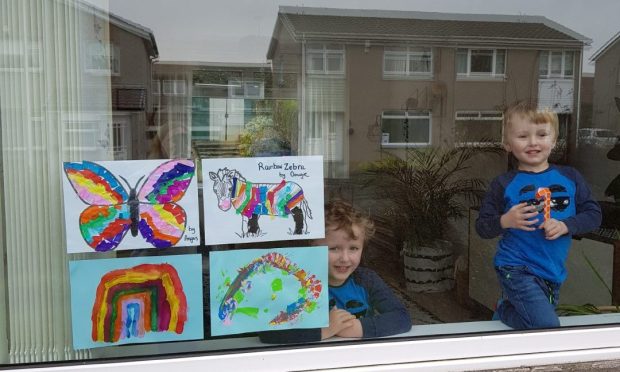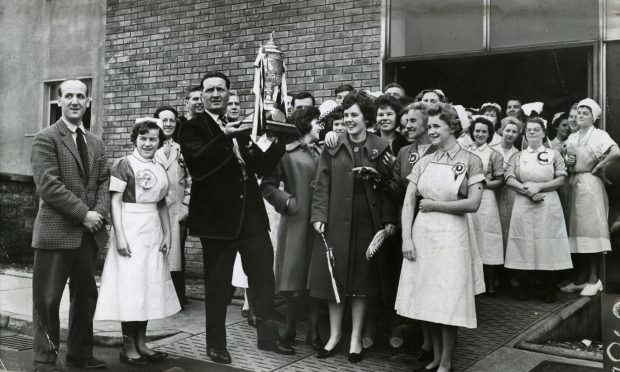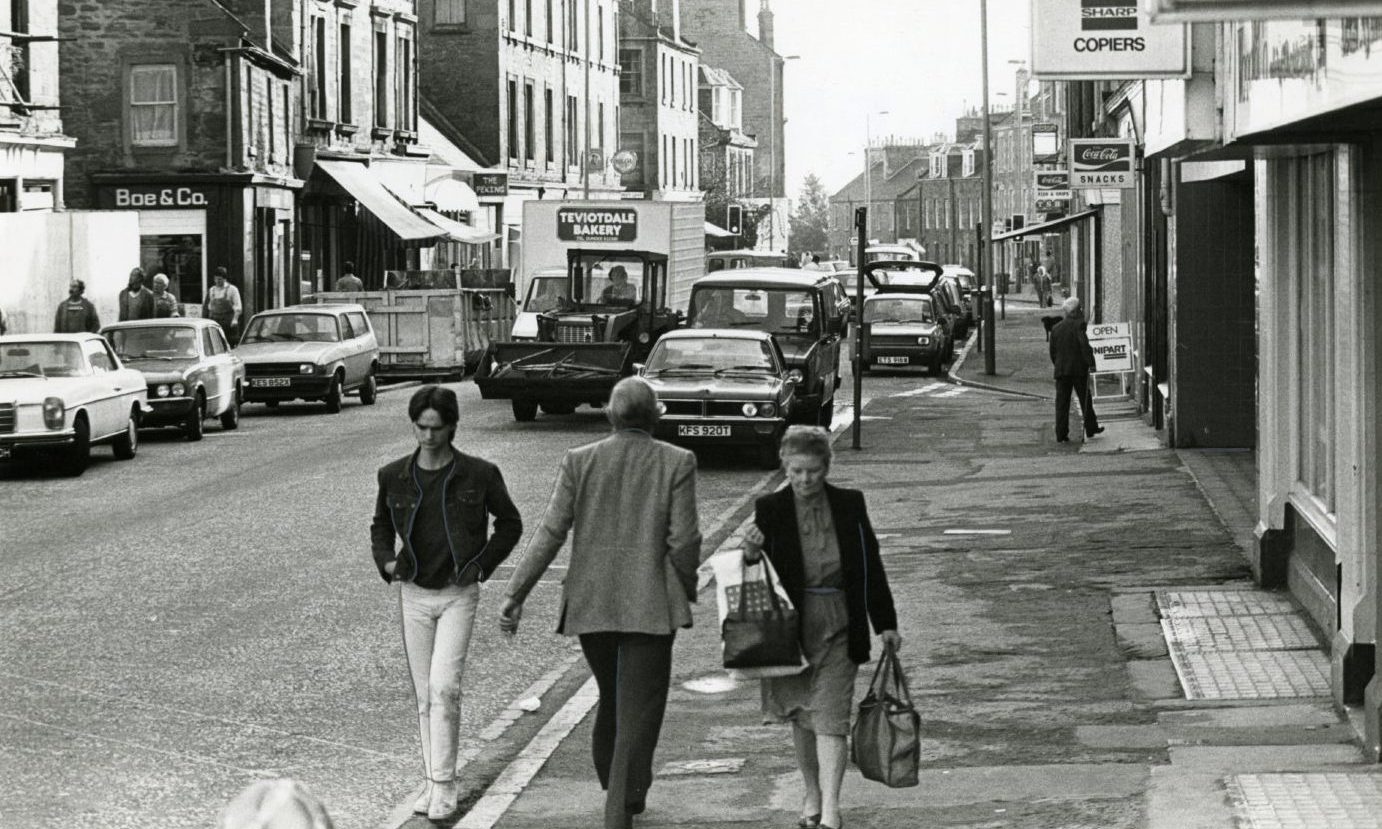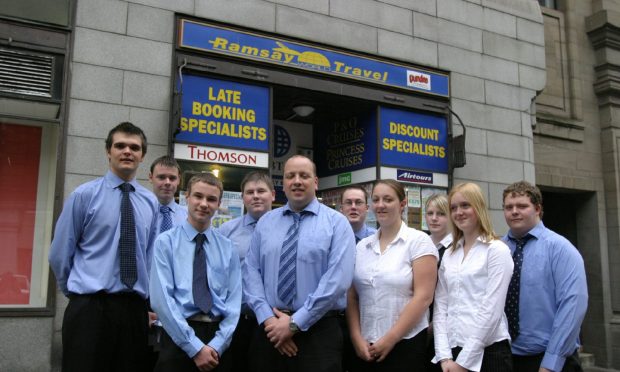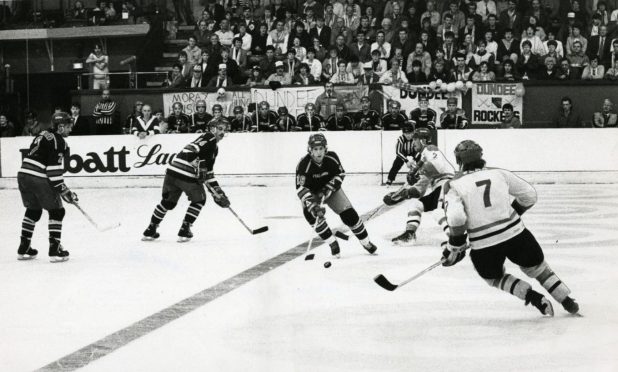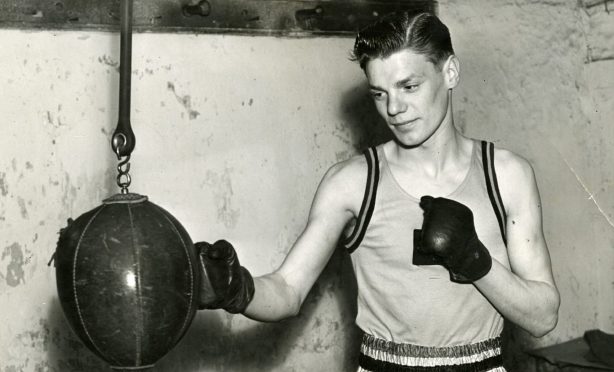Bobby Seith was a championship winner north and south of the border during an illustrious career spent with Burnley and Dundee.
The right-half was part of the Burnley side which won the First Division title in England in 1960 before leaving to join Dundee for a fee of £7,500.
Seith added to a solid core of the three C’s of Bobby Cox, Doug Cowie and Alan Cousin and was soon seen as a driving force for the Dens Parkers.
Indeed, two years after coming back north he was clinching another medal as Dundee were crowned champions of Scotland.
He would also captain the Dens men in both legs of the European Cup semi-final against AC Milan – the greatest stage on which the club has played.
Seith turned 90 this week and to mark the milestone, we took a trip down memory lane to celebrate the Monifieth man’s remarkable life in pictures.
Life and times
Seith joined Burnley from Monifieth Tayside and signed a professional contract with the English club in 1949.
He made his first-team debut against Manchester United’s Busby Babes at Old Trafford in October 1953 at the age of 21.
Seith played 238 games for the Clarets.
He was captain of the Burnley side that won the title in 1959-60, although he did not play in the final games after being dropped following a defensive blip.
He returned to Monifieth in the summer and approached Dundee manager Bob Shankly to ask if he could train with the Dark Blues to keep fit.
Shankly wanted to sign Seith permanently after he impressed in a practice match, although Burnley chairman Bob Lord wanted to sell him to Stoke.
Seith stood his ground and threatened to quit football. Lord realised he wouldn’t get his way and Seith signed for Dundee for £7,500, although he had his title medal withheld by the notorious Turf Moor chairman.
That wrong took 39 years to be put right.
The right-half was seen by many as the final piece in a defensive jigsaw which included Bobby Cox, Ian Ure and Bobby Wishart.
With Bob Shankly in charge, Seith was part of the Dundee side that clinched the club’s only league title in 1962, where a 3-0 win over St Johnstone saw them beat off the challenge of Rangers in what, until that final day, had been a nip-and-tuck race.
This allowed him the opportunity to compete in the European Cup, which had been denied him by his departure from Burnley in 1960.
He became a mainstay of the team that progressed to the European Cup semi-finals, where they were eliminated by the eventual winners AC Milan.
He made 197 appearances and would later go on to become a coach at Dens.
Seith moved on to Rangers as assistant manager to Scot Symon before resigning when he deemed his boss to have been unfairly sacked in late 1967.
He prospered as manager at Preston North End and spent a successful four-year spell at Hearts before retiring from the game to take up a new career in chiropody.
His voice was also heard during his work for the BBC where he used to be up in the gantry giving match reports from Dens and Tannadice.
On April 28 2012 Dundee FC’s 50th anniversary championship celebrations were held at the Caird Hall with more than 600 in attendance for a special dinner.
Seith enjoyed a memorable evening alongside the surviving members of that 15-man squad which achieved immortality back in 1962.
“It was a great and enjoyable experience to be part of the league-winning side,” he said.
“This was not just from a playing point of view, but because of the camaraderie that existed within the squad.
“It applied both on and off the field of play and this team spirit was a major factor in the team’s success.
“There were no cliques, no jealousies, with each player prepared to play his part as we chased success, with everyone ready to help out a team-mate who was struggling.
“The European campaign, too, was a memorable experience when we were pitted against the ‘big guns’ of Europe.
“The team surprised many people – and made many friends – as we progressed to the semi-finals only to be beaten by the eventual winners.
“On the way there were some magical moments. For example, there was the 8-1 thrashing of Cologne at Dens Park.
“Perhaps the finest performance, though, was the 4-1 victory over Anderlecht in the Heysel Stadium, after which the 60,000 crowd rose to applaud as we left the field.
“This was a fitting testament to the team and the quality of football it produced.
“My years with Dundee FC rank amongst the happiest in my career and I consider myself fortunate to have been a member of the Burnley and Dundee teams who, not only won the league championship, but entertained their respective fans with open, exciting, quality football.”
More like this:
Diego Maradona: Argentine legend almost played for Dundee during Bonetti era
Cobbled streets a riot of colour as Dundee hosted Scotland match in 1896
Finding common ground: When Dundee United and Dundee FC planned to share a stadium
